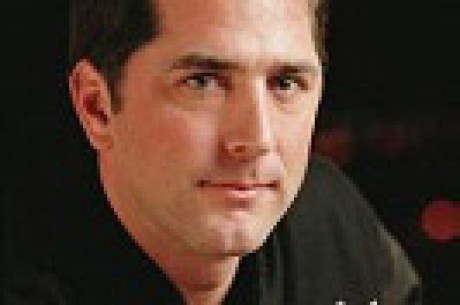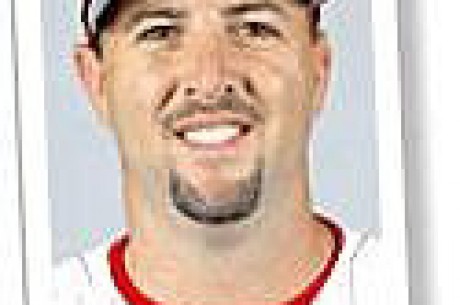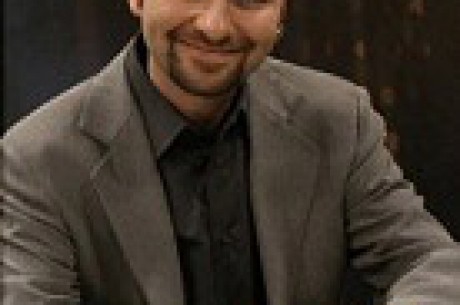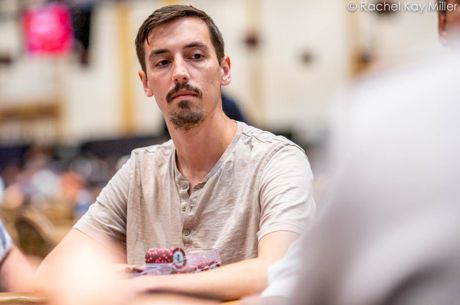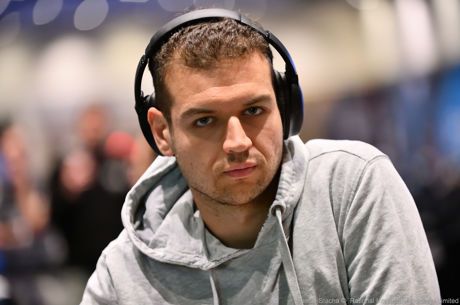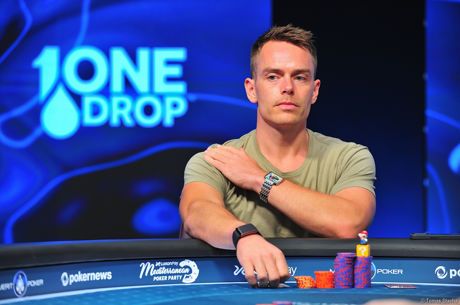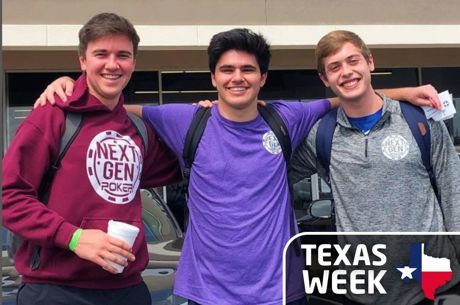Clonie Gowen - Class In The World Of Poker
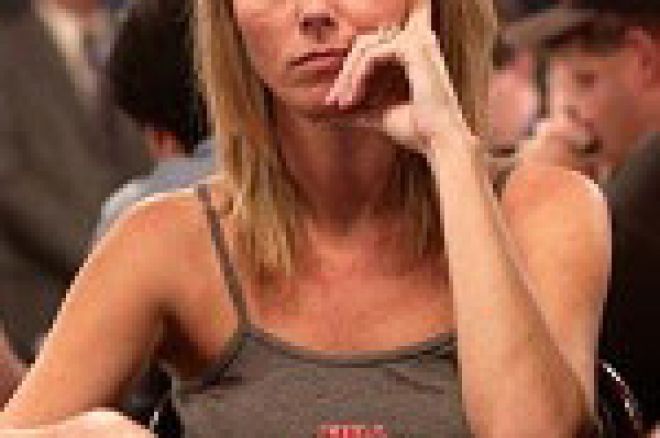
Texas' Clonie Gowen exploded on the poker world like, for lack of a better word, a cyclone. The champion of the inaugural World Poker Tour's Ladies' Night event, Clonie has moved from that into being one of the most recognized names and faces in today's poker scene.
She also showed that she has a strong base, through her family and through her charitable activities. I recently caught up with the very busy mother of two to talk about the whirlwind that is Clonie.
PN: OK, let's get this one out of the way quick. How did your parents come up with the name Cycalona?
CG: My parents named me Cycalona after a long compromise. I was born in Tampa, Florida during a rough hurricane season. My father wanted to name me Hurricane Jackson if I was a boy and Cyclone if I was a girl. My mother refused, but gave in by adding the feminine spelling.
PN: You have a competitive background in your teenage years. Does this same competitiveness transfer to the poker table? Is that the reason that you picked up the game?
CG: Most poker players are very competitive. I think my competitive spirit is apparent at the poker table, but I try to keep in check with it. I picked up poker as a teenager and instantly loved the competition. The adrenaline is very similar to basketball, beauty pageants and science fairs.
PN: When did you first feel like you could say you were a "professional" poker player?
CG: I first felt like a professional poker player when it paid my bills. I consider my career as a professional poker player both an honor and a huge responsibility. My family, fans and peers watch every move?good or bad.
PN: The first WPT Ladies' Night event was a big win for you. How did it feel to take down some of the stronger players in the game, including Annie Duke, Maureen Feduniak and Jennifer Harman?
CG: It's always great to win a high profile event, particularly winning among a distinguished professional group.
PN: Do "women-only" events help women in the game or hurt them?
CG: Women-only events are avenues that are enhancing poker. It allows women to build confidence so that they are less intimidated in coed games. Hopefully, this will add more women players in all events.
PN: It seems that, even during this poker boom, there are still not many women making the finals of events. Why? Is it a numbers game or is there a competitive difference?
CG: There are fewer women entering tournaments, which directly correlates to the number of women at the final table. How many times does a player flop a royal flush? It's going to depend on statistics and luck?very similar to how many women make the final tables.
PN: During the 2004 World Series of Poker on ESPN, you were involved in the "Blind Man's Bluff" competition. Was it as much fun as it looked on the air?
CG: Yes, it was highlight of the WSOP. It is a great time. It breaks the seriousness of the tournament and adds more gambling opportunities.
PN: Which would mean more to you...winning a World Series bracelet or pulling off a sanctioned World Poker Tour victory?
CG: My goal is to wear a WSOP bracelet at a final table of the World Poker Tour.
PN: You are on the board of directors for the United States Poker Association. What is the goal of the organization and how can the poker community help out?
CG: The United States Poker Association is all about promoting and enhancing the poker industry. The nonprofit organization was created to represent the broad poker industry. The board has player, media, and tournament and casino representation. The best way to help the USPA is to join (www.unitedstatespokerassoc.com or 1-888-For USPA) and make your voice heard.
PN: What would you do to ensure that poker continues at the high level it is now?
CG: Keeping the integrity is imperative. The World Poker Players Association and industry professionals giving back to the community will ensure the poker rise continues. Also, the casinos' offering a variety of events for ALL player levels is important.
PN: How important would sponsorship be to the poker world? Would you rather see tournaments sponsored or individual players get the sponsorships?
CG: Both are important to continue the expansion of poker.
PN: All In Magazine has recently joined the poker print media. As one of its columnists, what direction would you like to see the magazine go?
CG: I want to see them continue as a major publication proving the technical and social aspects of poker. All In Magazine paints a picture of how to play poker while capturing the fun of the tour.
PN: You call FullTilt Poker your online poker home. How often do you play there and what drew you to the site?
CG: The FullTilt Poker team is tremendous and part of my family. They have designed the best online poker software. The tremendous team oversees the design and upgrades. Full Tilt Poker include many great champs, Chris Ferguson, Howard Lederer, Phil Ivey, Erik Seidel, John Juanda, Andy Block, Erick Lindgren, Phil Gordon and Jennifer Harman.
PN: When playing online, do you chat? How distracting can that be when you or the other FullTilters are trying to concentrate on the game?
CG: Yes, I chat?it gives me the opportunity to get to know other players and answer questions throughout the world. Chatting online or at the table does not distract me. It makes my job fun.
PN: I understand that you are involved in a poker school. What information do you give the new player?
CG: New players must learn the basis rules, hands, position strategy and confidence. I began with the basics and moved on to advanced poker.
PN: What could you tell men about how to play poker against a woman? Or do you not want to give those secrets away?
CG: (smiles) Each table is different, but don't discount any player as a real threat.
PN: With the rise in poker's popularity, you have become one of the most visible faces in the game.
CG: Thanks! I love being a part of the poker boom.
PN: What else can we expect to see from you?
CG: I will be joining all the major tournaments, playing at Full Tilt and enjoying my family.
PN: Are there any books or DVD's in your future?
CG: I have joined a team of top pros (Robert Williamson III, Thomas Keller, Cyndy Violette, Scott Fishman, and David Williams) creating an instructional and tournament strategy DVD. It will be available this spring. I also am pleased to share that I am working on a new book.
PN: I noticed you have a great deal of involvement with the National Ovarian Foundation. What is their purpose and what other philanthropic causes do you support?
CG: The National Ovarian Foundation is a personal organization very dear to my family. I am personally involved with the local chapter of National Ovarian Cancer Coalition/Dallas-Fort Worth Division. Their mission is to raise awareness about ovarian cancer and to promote education about this disease. By dispelling myths and misunderstandings, the coalition is committed to improving the overall survival rate and quality of life for women with ovarian cancer.
My mother has battled ovarian cancer for five years. My mom, an Oncologist Nurse, without any warning signs, was diagnosed at stage four of the disease. Ovarian cancer is a silent killer, before most women realize they have the disease, they are already in the later stages of it.
Another organization I'm involved with is United Cerebral Palsy of the Mid-South. UCP Memphis has been serving children and adults with all types of disabilities since 1980. In fact, they are part of a larger network of 100 UCP affiliates nationwide. Many people are not aware that United Cerebral Palsy is the largest Healthcare charity in the country. UCP Memphis has sixteen programs and services that advance the independence, productivity, and full citizenship of persons with all types of disabilities. One of my favorite programs is Camp Livitup, which is the only summer day camp for children with all types of disabilities in the Mid-South. I am involved with UCP through their newest fundraiser, the Bluff City Texas Hold 'Em Open, which will be held in Tunica, MS on April 9th and 10th. I will be in Tunica for the tournament, both as a player and as a supporter of UCP. This open tournament will allow participants to pay the $125 entry fee and have a chance to win one of two seats to the 2005 Main Event at the World Series of Poker. This first annual tournament will surely be a big hit, and I am excited to have a chance to help support the great work of United Cerebral Palsy.
PN: From the looks of your schedule, you always have something on your plate. How do you get away from the game?
CG: I schedule breaks and leave work behind. Just staying at home, helping my daughter with homework or reading to my two year old makes life normal.
PN: You have a strong family and two children. Is that how you balance out your life?
CG: Absolutely, my family keeps me grounded and inspired. Each day, I try to do my best.
PN: How would your life have been different without poker?
CG: I cannot imagine my life without poker.
PN: Thank you for your time, Clonie.
CG: Thank you.
We would like to thank Clonie for taking some time with us. Whether at the tables or in her charitable work, she shows the class that we all should conduct ourselves, whether playing poker or in our lives. Don't forget about the United Cerebral Palsy fundraiser, to be held on April 9th and 10th. You can catch up with Clonie online at www.fulltiltpoker.com or through her website www.cloniegowen.com.

